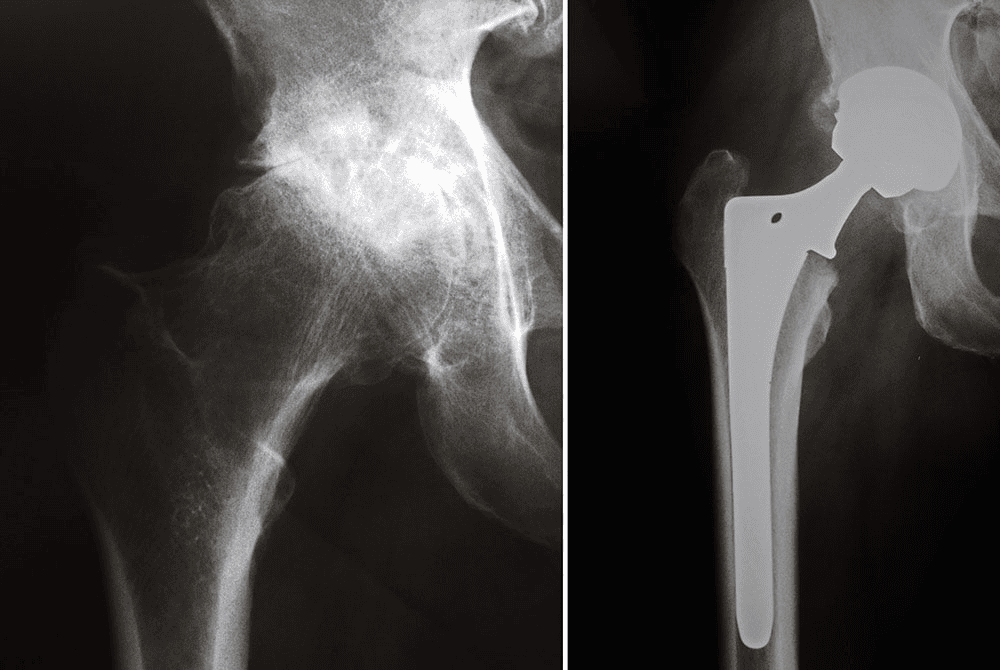Services Directory
Get in touch

Joint Replacement & Reconstruction
Southern California Orthopedic Surgeons specializes in advanced joint replacement and reconstruction procedures, helping patients reclaim mobility and live without pain. We are dedicated to providing the highest standard of care, utilizing the latest surgical techniques to treat joint conditions caused by injury, arthritis, and other degenerative issues. Whether you need a partial joint replacement or a complete reconstruction, our experts are here to guide you toward a pain-free, active lifestyle.
What is Joint Replacement and Reconstruction?
Joint replacement and reconstruction involves the surgical removal of damaged or diseased parts of a joint, which are then replaced with artificial components known as prosthetics. These procedures are commonly performed on the knees, hips, shoulders, and elbows but can also be applied to other joints depending on your condition. We aim to restore function, alleviate pain, and improve your overall quality of life through these highly effective treatments.
Common Conditions Treated
Joint replacement and reconstruction can be life-changing for patients suffering from various joint conditions, such as:
- Osteoarthritis: The most common form of arthritis, which leads to the breakdown of joint cartilage.
- Rheumatoid Arthritis: An autoimmune condition causing inflammation and joint damage.
- Traumatic Injuries: Fractures, dislocations, or other injuries that affect joint structure.
- Avascular Necrosis: A condition where blood flow to the bone is reduced, causing bone tissue death.
- Severe Joint Infections: Infections that damage the joint structure and require surgical intervention.
Types of Joint Replacement Surgeries We Offer
At Southern California Orthopedic Surgeons, we offer comprehensive joint replacement options tailored to your unique condition. Our procedures include:
- Total Joint Replacement: The entire joint is replaced with prosthetic components, typically used for hips and knees.
- Partial Joint Replacement: In cases where only a portion of the joint is damaged, a partial replacement may be performed, preserving as much of the natural joint as possible.
- Joint Resurfacing: In certain situations, we may recommend resurfacing techniques, especially for hips, which involve reshaping and capping the damaged joint surface with a metal prosthesis.
- Revision Joint Replacement: If your previous joint replacement failed or worn out over time, we can perform revision surgery to correct the problem and restore function.
Benefits of Joint Replacement
- Pain Relief: Say goodbye to chronic pain caused by joint degeneration or injury.
- Improved Mobility: Restore your ability to move freely and comfortably, improving daily activities and overall quality of life.
- Long-Lasting Results: Modern joint replacements are designed to last many years, providing durable and reliable function.
- Enhanced Quality of Life: A successful joint replacement can transform your lifestyle, allowing you to return to activities you love.
What to Expect from the Procedure
Your joint replacement surgery at Southern California Orthopedic Surgeons will be personalized based on your condition and medical history. The procedure typically lasts a few hours and is performed under anesthesia. Most joint replacements use minimally invasive techniques, meaning smaller incisions, less blood loss, and quicker recovery times. After the surgery, you’ll begin a tailored rehabilitation plan to restore the joint’s strength, flexibility, and function.
Recovery and Rehabilitation
Recovery from joint replacement surgery involves a combination of rest, physical therapy, and gradual reintroduction to normal activities. Our experienced rehabilitation team will work closely with you to develop a personalized recovery plan that fits your goals and lifestyle. Most patients can return to daily activities within a few weeks and experience full recovery within a few months.
Most people who have had hip or knee replacement surgery experience significant improvement in pain and regain the ability to walk, climb stairs, get in and out of the car and tie their shoes. But there are still some people who are dissatisfied with the results after the procedure. Patient satisfaction after hip and knee replacement surgery is important to surgeons as they strive for high quality and cost-effective care of their patients. Studies have shown that there are steps you can take before and after surgery to improve the likelihood that you are satisfied with the results.
Are People with New Knees Happier Than People with New Hips?
Another study compared satisfaction between people who had total hip replacement surgery and those who had total knee replacement surgery. They found that more hip replacement patients were willing to undergo the surgery again (96%) than knee replacement patients (89%). Overall satisfaction was 89% in the hip replacement group and 81% in the knee replacement group. People who had hip replacements had higher satisfaction with pain reduction while performing routine daily activities.
Finally, 78% of people who had hip replacements felt their expectations were met compared to 70% of people who had knee replacements. You might hear that a hip replacement is a much easier recovery than a knee replacement, and it’s true that people with new knees usually require more physical therapy after surgery. While many hip replacement patients eventually forget about their new joint, knee replacement patients may continue to have an “artificial” feeling in their new joint.(Source: AAHKS)
Schedule a Consultation Today
If you’re living with joint pain or facing the prospect of joint replacement surgery, contact Southern California Orthopedic Surgeons to schedule a consultation. Our team is ready to help you achieve long-term relief and get back to the active life you deserve.

